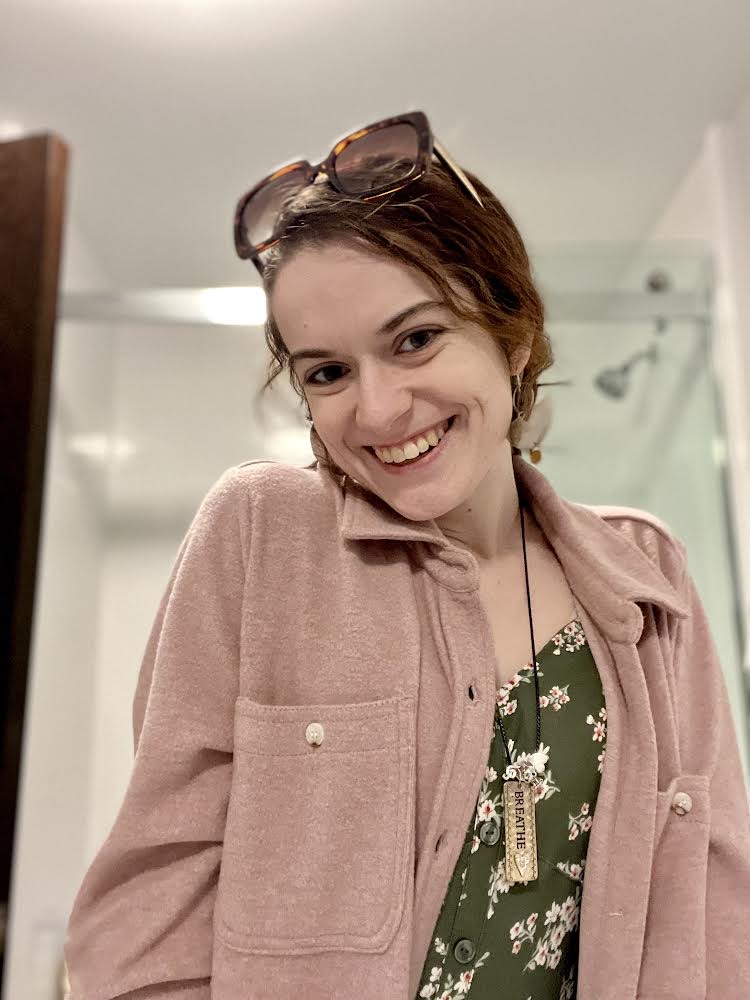Using Research to Connect with Audiences in Theater during Production of La Siempreviva

Alexandra Baxter, a senior theatre design major participating in this yearŌĆÖs Summer Undergraduate Research Experience (SURE) program, was mentored by Professor Fabio Polanco in the production of the play La Siempreviva. Professor Polanco was the director for the play, while Alexandra was the stage manager.
La Siempreviva is a play written by the playwright Miguel Torres and is set in Bogota, Colombia in 1985. It follows a family through the attacks on the Palace of Justice by the terrorist guerrilla group M-19, which happened in November of that year. Following a family through their daily lives, the audience sees a wealthy landlord taking advantage of the poor; domestic abuse; the loss of Julieta, the familyŌĆÖs daughter, as she becomes one of los desaparecidos ŌĆō the disappeared ones; and grief over the family being upended. Fear is shared between the family and the audience as the play progresses, ending with discussions on the mental health of Lucia, JulietaŌĆÖs mother.
The phenomenological research conducted while preparing for the play allows for Alexandra as stage manager to fully understand the ins and outs of the play, as well as allowing the actors to better connect with their characters, and for everyone involved in the production to work together to bring that same emotional reaction to the audience.

ŌĆ£Creative activity is highly valued as being just as significant and important as what we think of traditional research in the ┬ķČ╣╩ėŲĄ community,ŌĆØ said Professor Polanco.
The play was performed at LatinUs Theater company in Cleveland, Ohio several times over the course of Hispanic Heritage Month. The production drew in a multi-cultural and multi-lingual audience, offering English supertitles for the Spanish-speaking play.
Despite a multi-cultural audience, all audience members are able to experience the story. As Professor Polanco mentioned, ŌĆ£It is by a Hispanic playwright, about the Hispanic Community, for the Hispanic community; therefore, that is what you see. That is exactly what you get to experience, regardless of your background.ŌĆØ
ŌĆ£A theatrical performance does not just shed light on the story it is telling; it sheds light on the parallels that the audience draws from it. So, the theater tells the audience that there is work that needs to be done,ŌĆØ said Alexandra. ŌĆ£It is interesting to watch people leave and hear the discussions that are happening in the lobby area, and see people gather afterwards and make those connections between the art they just saw on stage and what we are experiencing right now in life.ŌĆØ
ŌĆ£My hope is that the Colombian community could come in and see this play and see an important event in their history represented, taking up space and being visible. I also hope that everyone who came could make connections between this story in the play and things we are seeing and experiencing today,ŌĆØ said Professor Polanco.
Working in theater comes with the skill of adaptation. There are many people working together to create the final production, and there are any number of things that could create unexpected moments in the production and performance of the play. As Professor Polanco mentioned, ŌĆ£Which version of ŌĆśI was not expecting that!ŌĆÖ am I going to have, and then how am I going to adapt to it? If you start with that, it really puts you on much better footing to be able to figure out solutions to challenges.ŌĆØ
ŌĆ£You have to always come in with an open mind ready for change, ready for adaptation in order to make it to opening night with a wonderful show,ŌĆØ said Alexandra.
Written by: Griffin Wold

